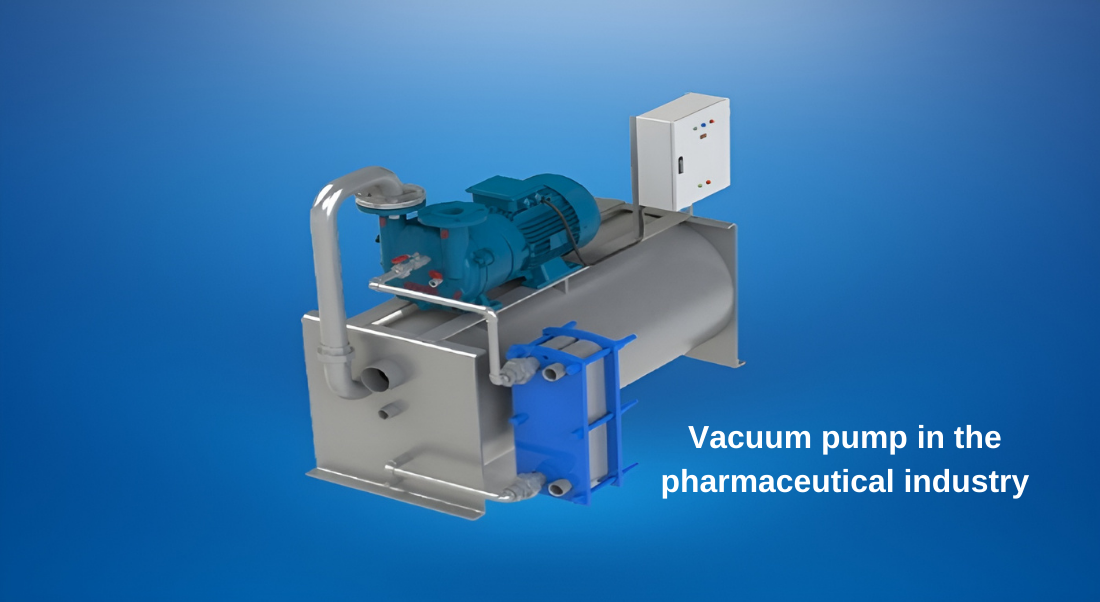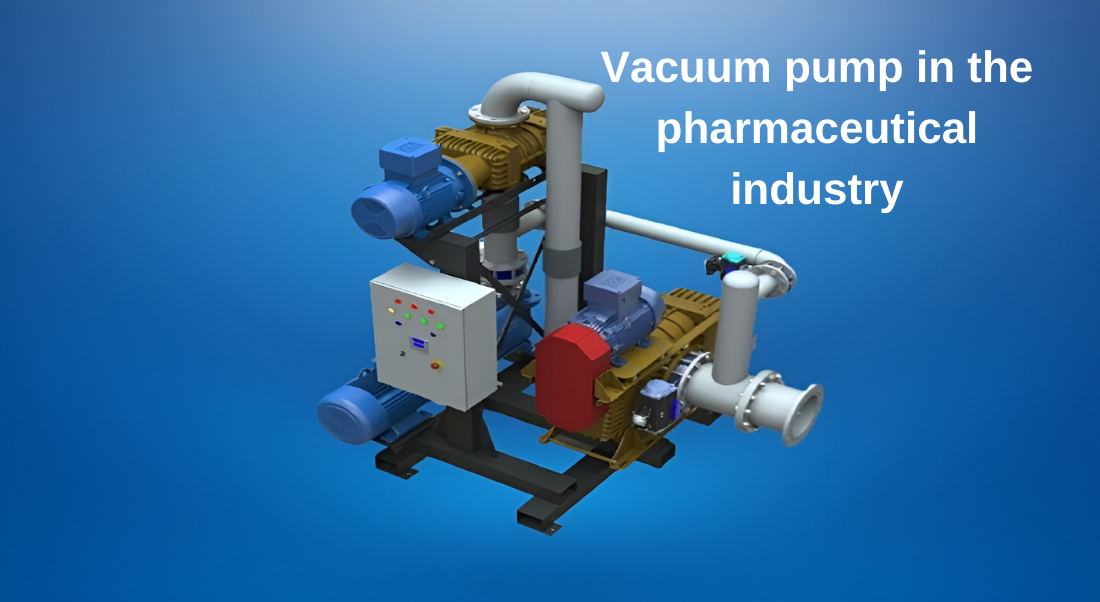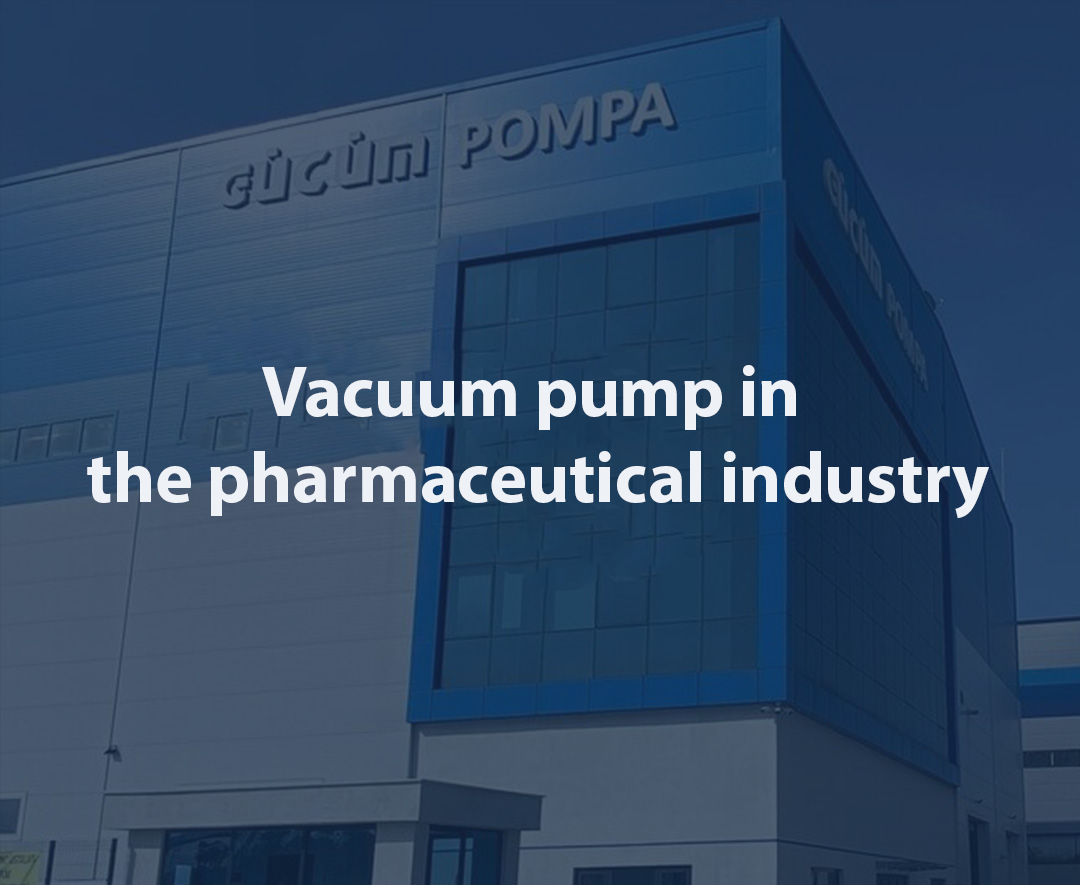Vacuum pump in the pharmaceutical industry
Table of Contents
- What Are the Types of Vacuum Pumps Used in the Pharmaceutical Industry?
- Which Factors Influence the Selection of Vacuum Pumps in Pharmaceutical Production?
- What Are the Advantages of Using Vacuum Pumps in a Pharmaceutical Production Facility?
- What Are the Cleaning and Hygiene Requirements for Vacuum Pumps in the Pharmaceutical Industry?
- What Is the Role of Vacuum Pumps in Pharmaceutical Production and Their Importance in the Process?
- What Should Be Considered When Selecting Vacuum Pumps in the Pharmaceutical Industry?
- What Are the Quality Control and Reliability Standards for Vacuum Pumps in Pharmaceutical Production?
What Are the Types of Vacuum Pumps Used in the Pharmaceutical Industry?
Vacuum pumps used in the pharmaceutical industry come in various types designed for different needs. These pumps can generally be categorized into two main types:
Rotary Vane Vacuum Pumps consist of a rotating rotor and vanes attached to it. These vanes use a wedge principle to create vacuum. Such pumps are typically suitable for low to medium vacuum levels and are widely used in the pharmaceutical industry.
Liquid Ring Vacuum Pumps create vacuum by the rotation of liquid rings around an axis. These pumps are more suitable for high vacuum levels and are often preferred in pharmaceutical production requiring sterilization.
Depending on specific needs and production processes in the pharmaceutical industry, vacuum pumps may vary in capacities, materials, and technical specifications. This diversity offers suitable options to meet specific requirements of pharmaceutical manufacturers.
In summary, the main types of vacuum pumps used in the pharmaceutical industry are rotary vane vacuum pumps and liquid ring vacuum pumps. Each has its own advantages and applications and should be chosen according to production processes. This diversity plays an important role in increasing efficiency and ensuring quality in pharmaceutical production.

Which Factors Influence the Selection of Vacuum Pumps in Pharmaceutical Production?
There are various factors that influence the selection of a vacuum pump in pharmaceutical production. These factors encompass a range of elements such as the requirements of production processes, the characteristics of products, and industry standards. Firstly, the characteristics and requirements of the production process are taken into account. It is crucial to determine the appropriate pump type based on where vacuum will be used, vacuum level requirements, and the nature of the process. Additionally, the characteristics of the pharmaceuticals to be produced should be considered. Since some drugs should not come into contact with certain materials, hygiene requirements and chemical compatibility must also be considered. Furthermore, the capacity and scale of the production facility play a role in pump selection. Larger-scale production facilities tend to prefer higher capacity and more durable pumps, whereas smaller facilities may opt for more compact and economical options. Lastly, factors such as reliability, ease of maintenance, and energy efficiency should also be considered. All these factors are important in influencing the selection of a vacuum pump in pharmaceutical production, and a suitable choice can directly impact the efficiency and quality of the production process.
What Are the Advantages of Using a Vacuum Pump in a Pharmaceutical Production Facility?
There are several advantages to using a vacuum pump in a pharmaceutical production facility. Firstly, vacuum pumps clean and sterilize the environment by removing unwanted gases and vapors during production processes. This enhances product quality and reduces the risk of contamination. Additionally, vacuum pumps enable products to be processed more quickly and efficiently, thereby reducing production time and costs. Vacuum pumps also assist in the more effective recovery of materials used in the production process, reducing waste and improving resource efficiency. Lastly, vacuum pumps enhance worker health and safety by eliminating unwanted odors and volatile organic compounds during the production process. Therefore, the use of vacuum pumps in pharmaceutical production facilities not only improves production quality and efficiency but also provides a safe working environment.
What Are the Cleaning and Hygiene Requirements for Vacuum Pumps in the Pharmaceutical Industry?
The cleaning and hygiene requirements for vacuum pumps in the pharmaceutical industry are crucial factors that play a vital role in ensuring product quality and safety during the production process. Regular cleaning and maintenance of vacuum pumps in hygienic conditions are essential to uphold these standards.
Vacuum pumps used in pharmaceutical production may be exposed to various contaminants in production areas. Therefore, it is necessary for the pumps to be regularly cleaned and disinfected at intervals. The cleaning process should be done using specially formulated detergents and disinfectants.
Additionally, the design of vacuum pumps should also comply with hygiene standards. Easy-to-clean surfaces and access points ensure the maintenance of a hygienic environment. Furthermore, the selection of materials for the pumps is important; materials that are easy to clean and chemical-resistant, such as stainless steel, should be preferred.
In the pharmaceutical industry, maintenance of vacuum pumps in accordance with cleanliness and hygiene requirements is important not only for product quality but also to comply with regulations. This ensures reliable and effective pharmaceutical production is consistently maintained.

What is the Role of Vacuum Pumps in Pharmaceutical Production and What is its Importance in the Process?
Vacuum pumps play a critical role in pharmaceutical production processes and hold significant importance in many stages. In the pharmaceutical industry, vacuum pumps facilitate the control of the reaction environment under vacuum, supporting the occurrence of desired chemical reactions. They are also used in fundamental steps such as solvent removal, drying processes, and material transfer. Ensuring the correct vacuum levels enhances product quality and optimizes process efficiency. The reliable and effective operation of vacuum pumps ensures the uninterrupted progress of the production process, which is critical for productivity and profitability. Therefore, vacuum pumps in the pharmaceutical industry are of vital importance for product quality, efficiency, and process control. Our company offers a wide range of products to ensure that vacuum pumps used in pharmaceutical production are of the highest quality and reliability. By providing solutions tailored to our customers' needs, we help optimize production processes.
What to Consider When Selecting a Vacuum Pump in the Pharmaceutical Industry?
The selection of a vacuum pump in the pharmaceutical industry is highly important for the efficiency, product quality, and safety of production processes. There are some important factors to consider when choosing a vacuum pump.
Firstly, the vacuum pump should be robust and reliable. Choosing a vacuum pump made of durable and high-quality materials produced in accordance with industrial standards ensures the uninterrupted progress of processes.
Additionally, the functionality and performance of the vacuum pump should be taken into account. A pump designed to meet the specific requirements of the pharmaceutical industry and capable of providing high vacuum levels should be preferred.
Hygiene standards should also not be overlooked. It is important that the vacuum pump is easily cleanable and contributes to maintaining a hygienic environment.
Lastly, energy efficiency of the vacuum pump should be considered. Choosing a vacuum pump that consumes less energy and has less environmental impact can reduce operating costs and is important for sustainability.
Considering all these factors, careful selection of a vacuum pump in the pharmaceutical industry ensures that processes proceed efficiently and safely.
What are the Quality Control and Reliability Standards for Vacuum Pumps in Pharmaceutical Production?
The quality control and reliability standards for vacuum pumps used in pharmaceutical production are critically important for product quality and safety. These standards are determined in accordance with industrial norms and regulations. Quality control in pharmaceutical vacuum pumps involves meticulous inspection of the materials and components used in the production stages. Reliability standards focus on the durability, performance, and functionality of vacuum pumps. These standards emphasize factors such as consistency in the manufacturing process of pumps, compliance with hygienic requirements, and adherence to safety protocols. Additionally, having international quality certifications for vacuum pumps and being manufactured by industry-leading manufacturers are important to ensure their reliability. Vacuum pumps that meet these standards help achieve consistent and reliable results in pharmaceutical production.
